Son travels to France to meet family who sheltered his father during World War II
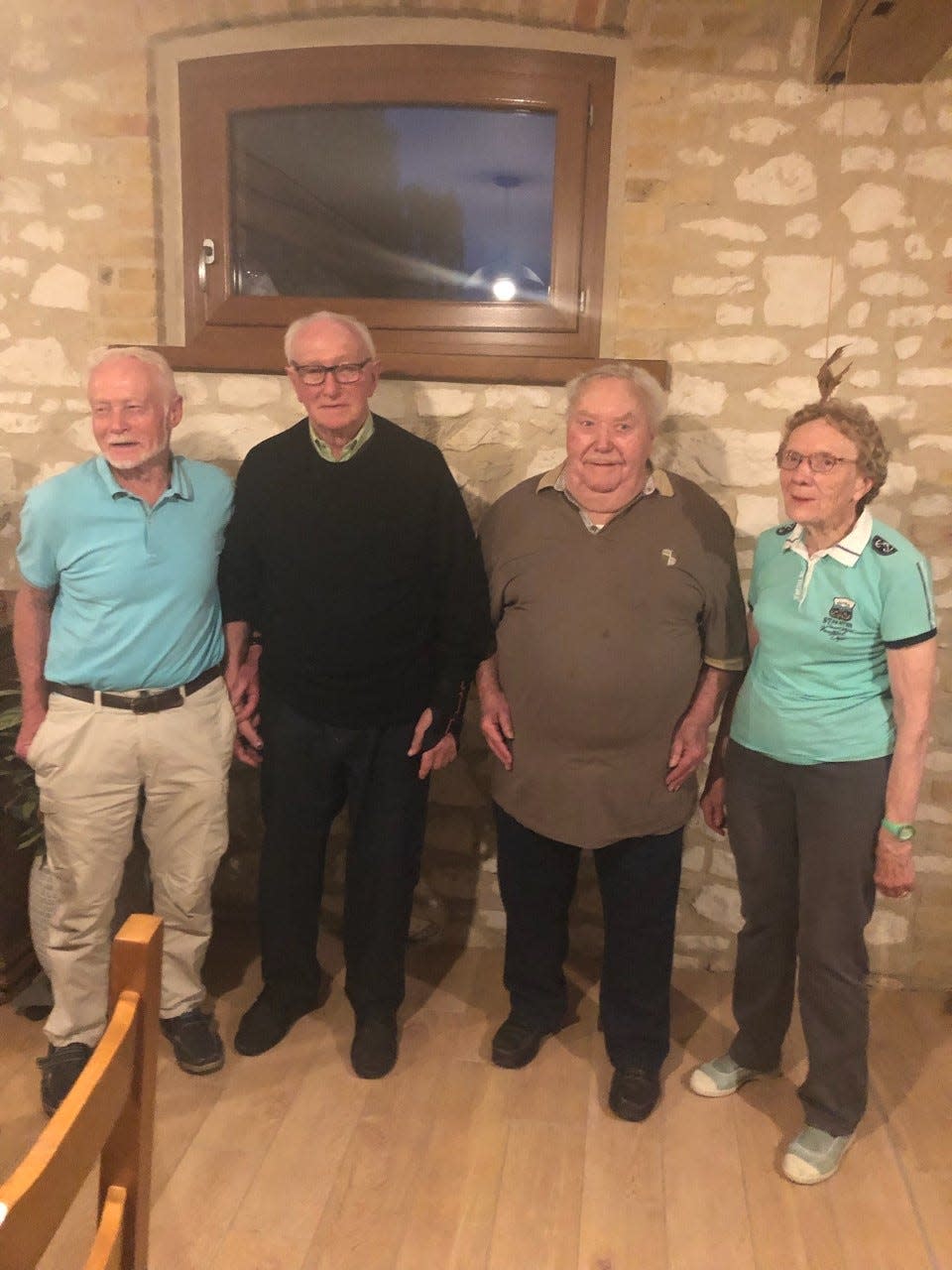
The parachute that saved Thomas La Grua's life after his plane was shot down during World War II was made into a dress for the daughter of the family that hid him from the Nazis.
That was one of the bits of history that 75-year-old Frank La Grua of Delray Beach discovered this summer when he visited France to meet the family that kept his father safe during the war. His father died a few years back. But Frank was enthusiastically embraced by those who remembered Thomas, or "Tom" as his saviors called him.
“Everybody over there was thrilled to see me,” La Grua said. “It meant as much to the people I met as it did to me.”
Read more: WWII veteran, 97, recalls service in 'Ghost Army'
Also: Margaritaville at Sea launches 'Heroes Sail Free,' honors military, police and educators
In 1944, Thomas La Grua was working as a gunner when his plane was shot down during a bombing raid over France. The pilot was killed, the plane was crashing, and La Grua's only option was to parachute out.
He followed his training: Jump, count to 10 and pull the cord. He landed on farmland in Nazi-occupied Cardonville, France, where he was found and sheltered by a local family.
After the war, La Grua returned to the states to live a quiet and reserved life, rarely speaking of his service. But he shared tidbits.
Downed fighter hidden in plain site
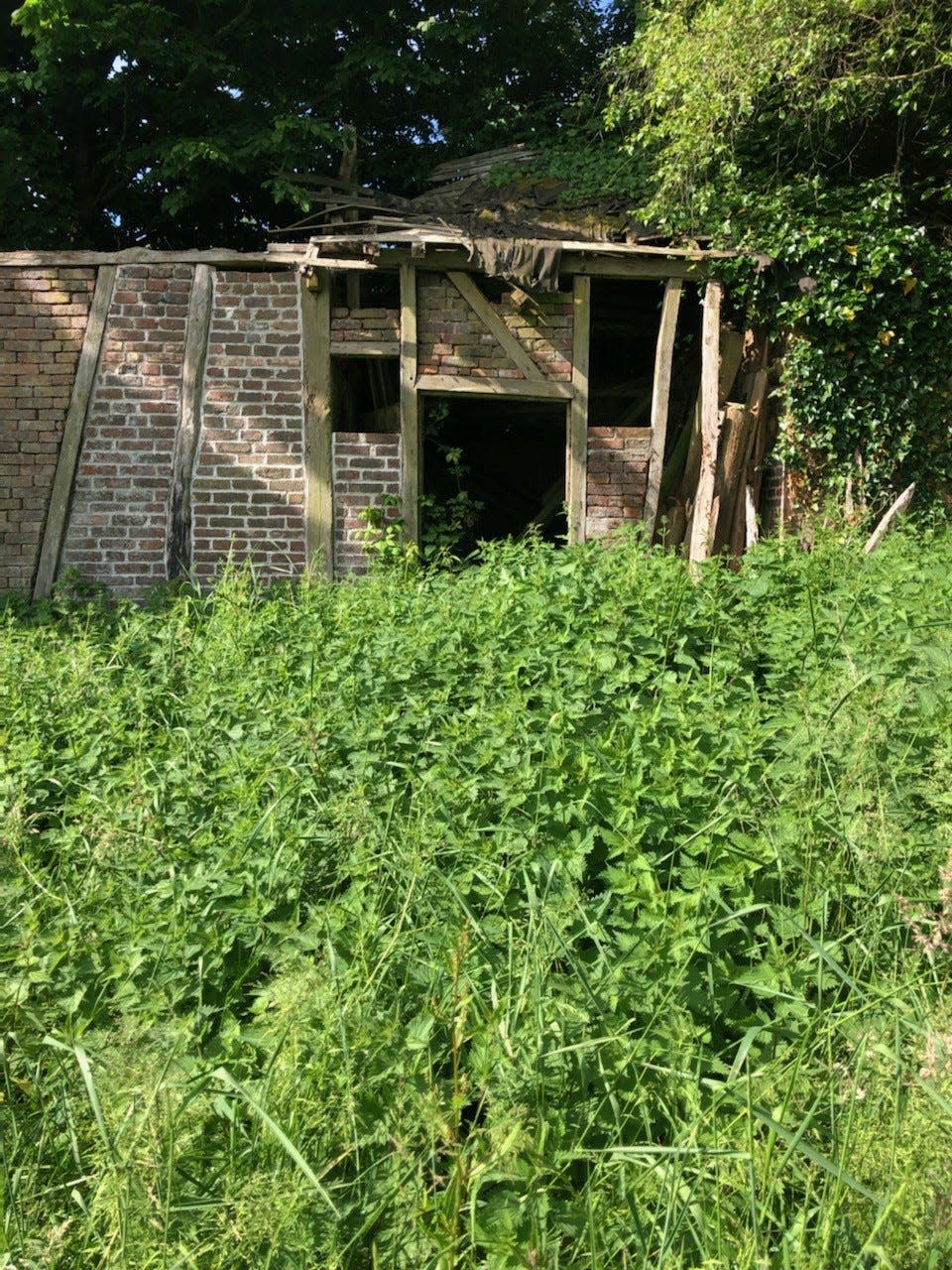
“We grew up on the stories of my father,” Frank La Grua said. “It was passed down through generations.”
After the plane went down, a farmer name Gilbert Marbaix, his wife, Marie Terese, and their family hid La Grua in a rabbit hut at first. They eventually took him inside and hid him in the attic.
Marbaix and his sons couldn’t remove La Grua's aviator ring, so the family covered it with bandages and chicken blood so the Nazis wouldn’t spot it.
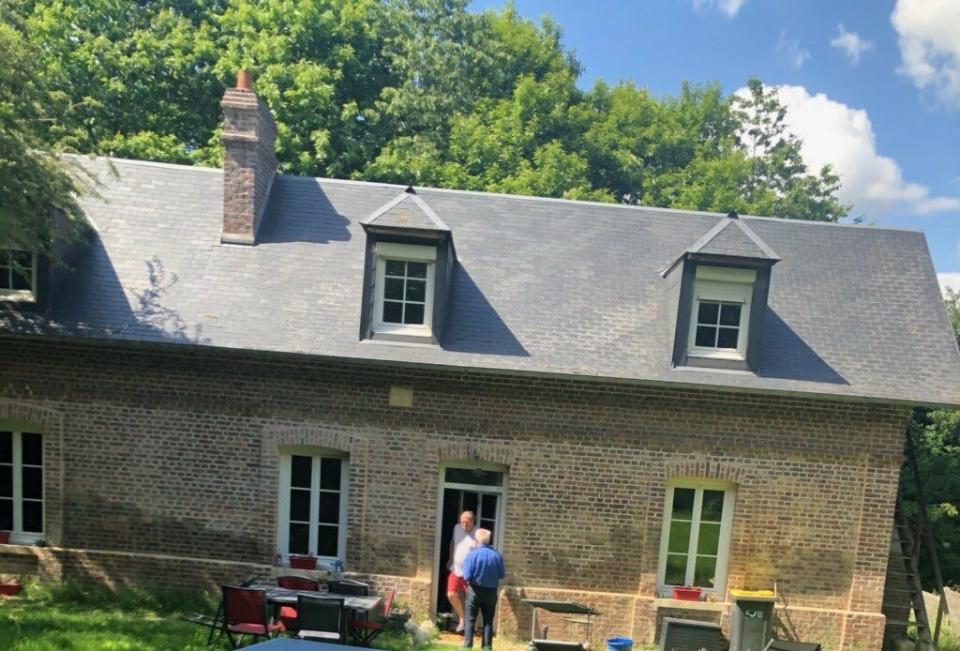
When Nazis arrived at the farm, La Grua cooked them breakfast, pretending to be deaf and mute.
Three months later, the French were liberated. Gilbert Marbaix bought La Grua a suit, and town residents hoisted him on their shoulders to celebrate.
Tracking father's saviors with one decades-old letter
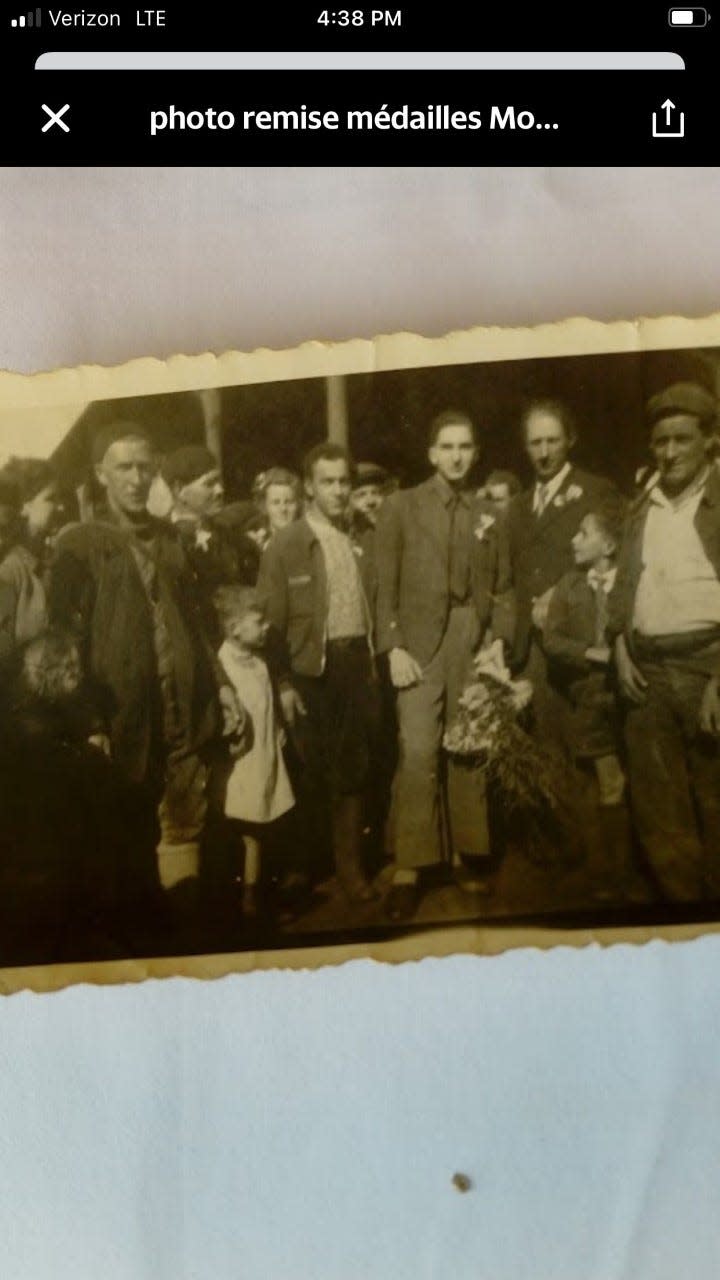
After La Grua returned to the U.S., he received one letter from the Marbaix family in 1947 and never heard from them again.
In the letter, written in English, the Marbaixes shared family news and told him he was missed. The note was all that La Grua's heirs had to go by when searching for information about the veteran's French protectors.
Darren Silverman, who is married to La Grua's granddaughter Allison, enlisted the help of his cousin Jeff Kagan, an amateur genealogist.
"I never found anyone in France before," Kagen told Silverman, "but I have a French friend you can talk to."
Silverman was introduced to E. David Benaym, a French journalist and correspondent in Israel. Benaym received a copy of the 1947 letter and did some research. He tracked down someone in Bagnone City Hall who found one Marbaix descendant.
The problem was, she died last year. He then ordered the death certificate, which listed her father Gilbert Marbaix and noted a daughter named Agathe.
Silverman found the daughter on Facebook and sent a desperate message: "Pardon my interruption but my family is trying to find the descendants of Gilbert Marbaix. He would've been a farmer during WW2."
A response came a day later. "My Uncle Robert remembers Thomas well, he remembers playing with his ring and hiding it with a blindfold."
Through Agathe, Frank La Grua and Robert Dumesnil finally got in touch.
Turns out, the Marbaix family (there were 10 children altogether) had been running a search of their own. Trying to find Thomas, they had even written a letter to the U.S. Army in 1994 that was only recently discovered.
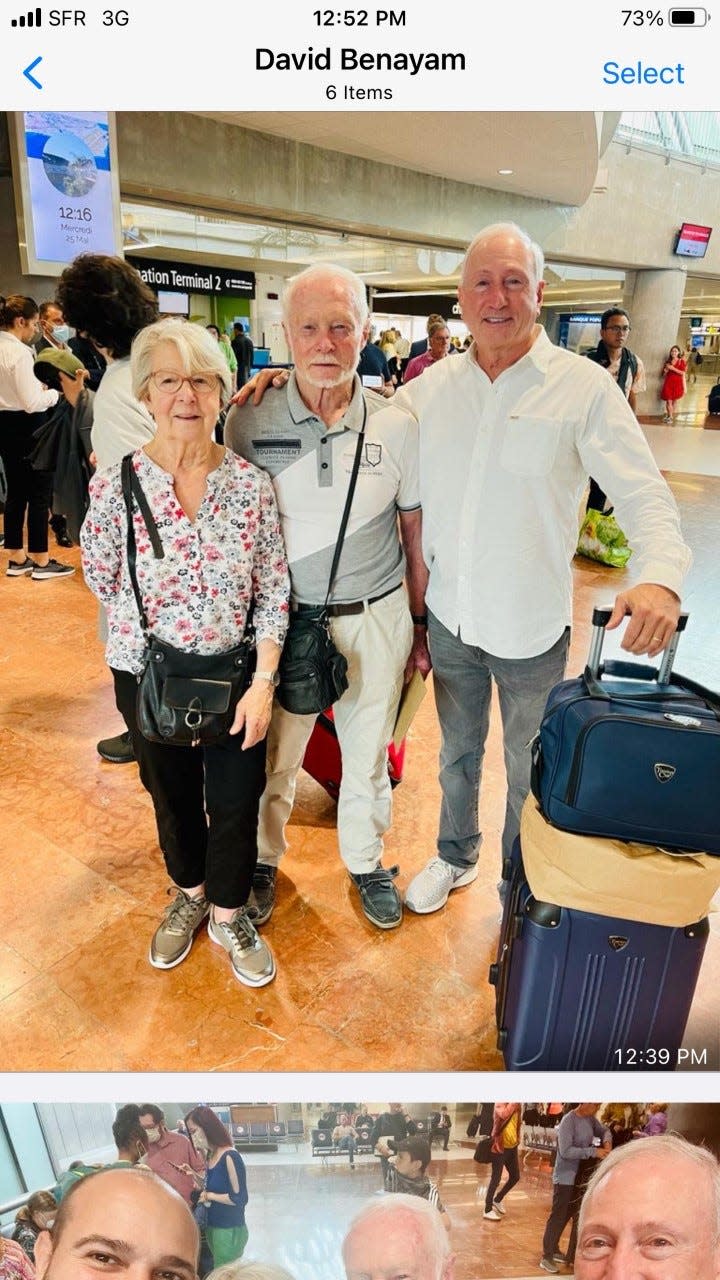
Once connected, Frank flew to Nice, France, this summer to meet Dumesnil and his family. They took a road trip to Ardennes to meet Gilbert's family and then to Cardonville to see the farmhouse where Thomas La Grua sheltered.
Memories still crisp in France
Dumesnil, now 84, still recalls being a 6-year-old in the war and helping hide the American soldier for three months.
“Your people gave up your lives for us. You gave up your lives so we could have freedom,” Robert’s brother-in-law, Francois, said to Frank La Grua.
As Frank traveled to visit the various family members, he was treated as one of them. At one house, they had homemade pie and coffee. At the farmhouse, they enjoyed a feast and toasted Tom with Champagne.
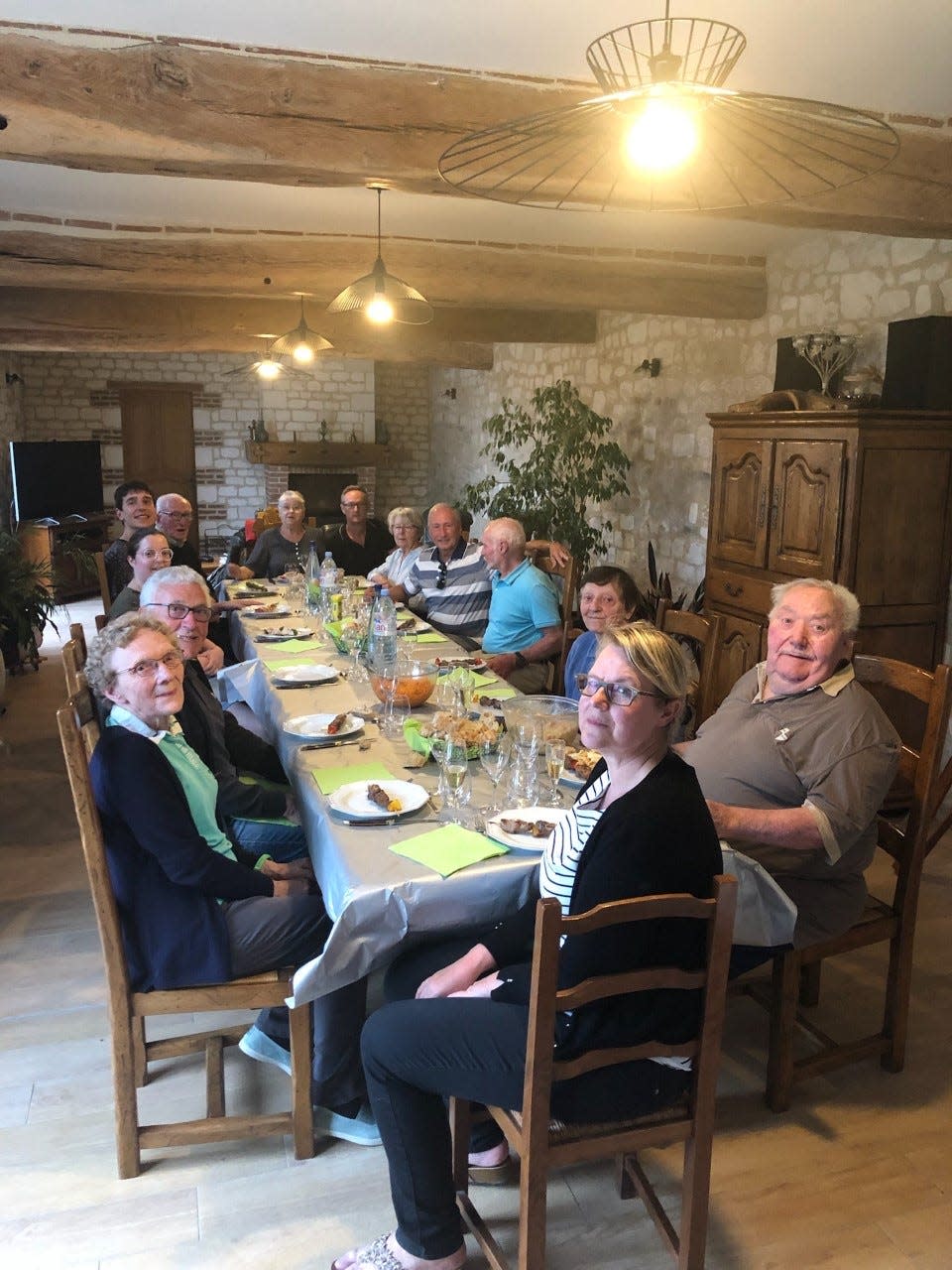
At one city hall, a woman gave Frank an envelope. Inside was a list of men on Tom’s flight mission and what happened to them. Three evaded capture.
“Every time my father went on a plane he had to think it was a suicide mission,” La Grua said. “I’m sure it took its toll on a lot of those guys — not just my father.”
This article originally appeared on Palm Beach Post: Delray man meets family of his WWII father's French saviors

